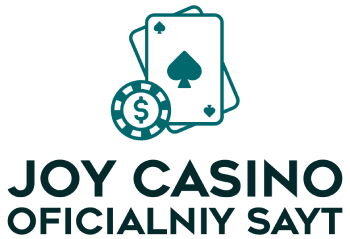Gambling addiction is a complex issue that can be influenced by various psychological factors. While the initial attraction to gambling may stem from the excitement of the game, the desire for thrill, and the possibility of winning big, addiction to gambling often goes beyond mere enjoyment.
One key psychological factor contributing to gambling addiction is the concept of reinforcement. When individuals engage in gambling activities and experience a win, their brains release dopamine, a neurotransmitter associated with pleasure and reward. This reinforcement mechanism can make the gambling experience highly addictive, as individuals seek to replicate the same euphoric feeling associated with winning.
Moreover, gambling addiction can also be linked to cognitive distortions. These distortions involve erroneous beliefs about one’s chances of winning, the ability to control the outcome of a game, or the belief that past losses increase the likelihood of future wins. These cognitive biases can fuel addictive behavior by leading individuals to make irrational decisions and continue gambling despite negative consequences.
Additionally, individuals with gambling addiction may also experience psychological distress, such as anxiety, depression, or loneliness. Gambling can serve as a coping mechanism for these underlying emotional issues, providing a temporary escape from negative emotions. However, this escape can become a slippery slope towards addiction as individuals increasingly rely on gambling to regulate their emotions.
In summary, gambling addiction is a multifaceted issue influenced by various psychological factors, including reinforcement mechanisms, cognitive distortions, and emotional vulnerabilities. Understanding these psychological dynamics is crucial in addressing and treating gambling addiction effectively.
Cognitive Distortions in Gambling Behavior
When participating in gambling activities, individuals may display cognitive distortions that impact their behavior and decision-making processes. These distortions can lead to erroneous beliefs regarding the probability of winning, such as an exaggerated perception of success based on past wins or lucky streaks. Consequently, individuals may engage in risky behaviors like placing larger bets or attempting to recover losses by further gambling.
Furthermore, cognitive distortions may cause individuals to disregard the actual probabilities of the game and prioritize short-term gains over long-term consequences. Recognizing and addressing these distortions is crucial for making informed decisions while gambling and reducing the risk of developing problematic gambling habits. It’s important to be mindful of these cognitive biases to maintain a balanced approach to gambling.
If you are interested in The Role Of Superstitions In Gambling Behavior, read this article:https://joycasino-oficialniy-sayt.com/2024/10/04/the-role-of-superstitions-in-gambling-behavior/
Reward System and Dopamine Release
Engaging in gambling behavior activates the brain’s reward system, triggering the release of dopamine, a neurotransmitter linked to pleasure and reinforcement. This activation occurs when participating in activities like placing bets or playing casino games.
Dopamine is released in response to the potential rewards associated with gambling, leading to feelings of pleasure and reinforcing the behavior. The release of dopamine can induce a sense of euphoria and excitement, potentially contributing to the development of addictive behaviors.
With repeated exposure to gambling-related stimuli and subsequent dopamine release, alterations in the brain’s reward circuitry may occur, increasing the likelihood of seeking out gambling activities to replicate the pleasurable effects.
Emotional Regulation and Coping Mechanisms
Individuals often turn to gambling as a way to regulate their emotions, seeking relief from stress, anxiety, or depression. The fluctuating highs and lows experienced during gambling can serve as a temporary distraction from negative emotions, offering moments of excitement and euphoria.
However, relying on gambling as a coping mechanism can lead to compulsive behavior, where individuals use it as a means to escape difficult feelings. This reliance on gambling to manage emotions can develop into an addiction, creating a harmful cycle where losses can trigger further gambling to cope with negative emotions.
It’s essential for individuals to develop healthier coping strategies to break free from this cycle of addiction.
Social Influences on Gambling Addiction
Social influences have been identified as key factors in the development and perpetuation of gambling addiction. When individuals are exposed to frequent gambling behaviors among their social circle, it can normalize such activities and increase the likelihood of their own engagement. The pressure to conform to group norms and seek acceptance from peers can lead individuals to participate in gambling activities, even if they didn’t initially have an interest in them.
Moreover, group outings to casinos or betting events can create a sense of camaraderie, reinforcing the connection between social interactions and gambling. These social dynamics can subtly influence attitudes and behaviors towards gambling, thereby increasing the risk of addiction.
Neurobiological Factors in Compulsive Gambling
Investigating the neurobiological aspects of compulsive gambling reveals a complex interaction of brain functions contributing to the onset and persistence of this addictive behavior. Dopamine, a neurotransmitter linked to pleasure and reward, plays a pivotal role in the brain’s reward circuitry and is commonly associated with compulsive gambling. Research suggests that individuals with gambling disorder may exhibit alterations in dopamine levels or receptor activity, leading to heightened reactivity to gambling-related cues.
Furthermore, irregularities in the prefrontal cortex, crucial for decision-making and impulse regulation, have been linked to compulsive gambling tendencies. These neurobiological findings underscore the intricate processes involved in the development of gambling addiction, highlighting the importance of comprehensive treatment strategies addressing both psychological and biological components.
Conclusion
Understanding the psychology behind gambling addiction is essential for effectively addressing and treating compulsive behaviors. Cognitive distortions, such as irrational beliefs about winning or losing, play a significant role in fueling addictive gambling behaviors. The brain’s reward system, particularly the release of dopamine during gambling activities, reinforces the addictive cycle.
Emotional regulation strategies, such as mindfulness and stress management techniques, can help individuals cope with triggers that lead to gambling urges. Social influences, including peer pressure or cultural norms around gambling, can also contribute to the development and maintenance of addiction.
Additionally, neurobiological factors, like genetic predispositions or alterations in brain chemistry, may increase vulnerability to gambling addiction. Seeking help, whether through therapy, support groups, or treatment programs, is crucial for breaking free from the cycle of addiction and regaining control over one’s life.

